Posts by Nathan White
Being a Person of Peace this Lenten Season
Friends,
As we approach Easter, I am reflecting on the life of Jesus. His time of ministry has had the greatest resounding impact ever known, changing this world over the past 2000 years. I am grateful for the obedience of Jesus to the will of the Father and I am struck by how much God was willing to give of Himself so that we can have a forever home with Him.
During the ministry of Jesus, we read that he and his disciples had no place to call home. As they went throughout the region, they would search for a “person of peace” to welcome them and create a space they could feel at home. As I have reflected on this passage, I find myself pulled toward the term “person of peace”. Who are “people of peace” in our day? What does it look like to embody this in the world around us?
It doesn’t take long for me to think about God’s call to welcome the stranger. The person who welcomes the stranger is a person of peace. Today, there are over 100 million people who are displaced from their homes, some of whom have found themselves arriving here in Chicagoland as a stranger in need of welcome.
Friends, we have the opportunity to be “people of peace” in our present-day world. We can be people who show welcome to our new refugee and immigrant neighbors. Though we are not coordinating housing refugees in volunteer homes at this time, we are working to ensure that every family that needs a place to stay finds one. We have staff committed to networking with property owners and finding long-term residences for those in need. We are coordinating rental support and training for new renters and landlords.
By partnering with World Relief financially through sacrificial giving or a special offering, together we can help find housing for our new neighbors. Together, we can embody what it means to be “people of peace”. Send me an email to talk more.
Grace and Peace,

Rev. Keith Draper
Regional Director of Church Relations
World Relief Chicagoland
630.824.8498 | kdraper@wr.org
Stories of Impact
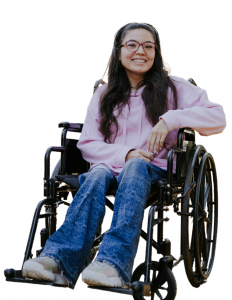
Farzana is an Afghan Paralympian who was forced to flee Kabul in August of 2021.
As a leader and advocate for women in her country, she was no longer safe. She found herself living in temporary quarters at Fort McCoy in Wisconsin. After several months, she was sent to Chicagoland for a better living situation.
Because of partners like you, World Relief was able to find a place for her to live that accommodates her mobility devices.
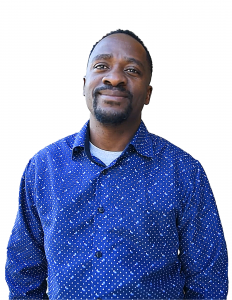
Jerome lived in a refugee camp for 19 years.
Can you imagine that? During his time in the camp, Jerome was already working to make a difference and that made him a target.
Thankfully, he was selected to be resettled and came to the United States.
When he arrived at his first apartment, he was finally able to live in a secure and safe place. He was able to find peace again thanks to people of peace who supported the finding and filling of his new apartment.
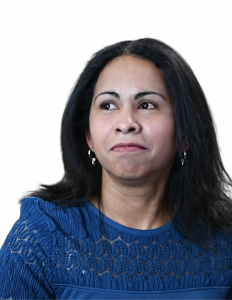
Yomardy left her home in Venezuela to come to the United States on a Fulbright scholarship.
Fully intending to return to Venezuela and use her status as National Teacher of the Year, she soon discovered that she was declared an enemy of the state in Venezuela.
Her honesty about the conditions in her country meant that she could no longer return to her home. Thanks to partners like you, Yomardy was able to find the support she needed here in Chicagoland.
Her new dream is to buy a house to be able to welcome others like her who need a place to call home.
Download their stories as a pdf.
The Impact of Your Giving
$15,000
A gift of $15,000 can provide 1 month of housing assistance to 10 families in need of short-term assistance. This kind of gift provides stability that is vital to the successful launch of a new life here in Chicagoland.
$10,000
A $10,000 gift can provide the support and coordination needed to ensure that housing is available when refugees arrive. This gift can cover coordination for over 80 newly arrived families in need of a home.
$5,000
A gift of $5,000 can provide vital case management service to ensure that newly arrived families learn everything they need to know about their rights and responsibilities as first-time tenants in the United States.
$1,500
A $1,500 gift can prepare two new apartments with the essentials needed for everyday life. For those who had to leave everything behind, this gift becomes some of the first items owned by newly arriving families.
Answering Your Questions About Asylum Seekers
Last week, buses sent from Texas began arriving in Chicago carrying asylum seekers from the U.S. southern border. Since then, local government officials and organizations have been working quickly to ensure that the new arrivals have access to food, housing, and the other essentials every human needs to survive—while also creating longer-term solutions.
With the news that some of the asylum seekers have been relocated to temporary lodging in the suburbs, many people in Burr Ridge, Willowbrook, Elk Grove Village, and other neighborhoods in Chicago’s Western suburbs are asking “What’s going on? What does this mean for my community?”
World Relief has served immigrants and refugees in the Chicago area for more than 40 years. We have offices in Aurora, Chicago, and DuPage County and work with hundreds of local partners. We know you have questions and concerns – and we want to help you stay informed and ready to respond.
Your Top Questions
Who are the people coming on these buses from Texas? Are they illegal immigrants?
The people who are arriving in Chicago came to the United States after traveling for days or weeks. They have come from places like Venezuela, Colombia, and other countries in order to seek asylum. Federal law allows people who flee their home countries to escape persecution to seek asylum in the U.S., and requesting asylum grants them legal protection and the right to remain in the United States as an “asylee.” Every person who has arrived on the buses from Texas has been permitted entry by the federal government as they await the opportunity to present their asylum case.
Asylum seekers are following what U.S. law requires. In order to seek asylum, people must physically come to the United States and present themselves to an official to declare their request for asylum. Once here, they are granted entry as they wait to present their case at an appointed time.
Why do these asylum seekers need so much help?
An asylum seeker may wait months before getting the chance to present their case for asylum. During this time, they need money to live and a place to stay just like everyone else. However, there is little to no financial provision from the U.S. Government for asylum seekers. Additionally, they are not legally allowed to work in the U.S. until they have received work authorization. That process can take 6-9 months. This puts many families at risk of homelessness and makes them very vulnerable to predatory actors and poverty. Programs like World Relief’s HOME program give opportunities for the community to come alongside asylum seekers during this difficult time – helping people get stable housing and other support while they wait for their asylum claim to be heard.
I’m worried about drugs and crime coming into my community.
It is concerning to see the rise in drug-related deaths linked to fentanyl. However, historically, people seeking safety and asylum are not a major cause of increased drug availability. There is substantial evidence that the majority of people who smuggle fentanyl and other drugs into the U.S. are actually U.S. citizens. In fact, most of the fentanyl that comes into the country is from truckers or U.S. citizens coming legally through ports of entry. It’s not from undocumented immigrants or asylum seekers.
Generally, migrants are not more likely to engage in criminal behavior. In fact, both documented and undocumented immigrants are less likely to commit crimes than U.S.-born citizens!
One way we can help protect our communities and those who have recently arrived is by providing support to families and individuals who are in particularly desperate and vulnerable situations. Asylum seekers are uniquely vulnerable due to fleeing persecution, war, violence, or extreme poverty and not having support in the U.S. When our community responds to help newcomers, like those arriving on buses from Texas, we actually make the community safer and more welcoming for everyone!
What can I do to help the asylum seekers in my community?
Each year, hundreds of people like you, and churches across the Chicagoland region, make our community a welcoming place for refugees, asylum seekers, and other immigrants. We are so grateful for people like you who have the heart to help others! You can help the recent newcomers by giving to the asylum program at World Relief Chicagoland.
Donate Now
Subscribe to Our Emails to Stay On Top of Asylum-Seeker News in Chicagoland
World Relief Chicagoland Welcomes Texas Bus Arrivals, Prepares for Community-Wide Response
CHICAGO, September 1, 2022
On Wednesday night, the first buses commissioned by the State of Texas carrying asylum seekers and other migrants from the U.S.-Mexico border arrived in Chicago. At World Relief Chicagoland, we serve asylum seekers, refugees and other immigrants by extending welcome, providing vital services and connecting people together. We do this in partnership with hundreds of local churches, businesses and community organizations across Chicagoland.
World Relief Chicagoland welcomes those who have arrived on buses from Texas. These individuals and families have fled hardships such as corruption, threats against their lives, loss of loved ones and authoritarian regimes. They have been permitted by the federal government to be present within the United States while they await further court hearings to determine their permanent eligibility for asylum or other protections offered by U.S. law.
When individuals and families seek safety at the U.S.-Mexico border through interactions with Border Patrol agents, we believe it is vital that they receive due process under the law, and that they are kept safe while working their way through that process.
Often, families who are lawfully permitted into the United States as they apply for asylum will travel to be with family and communities of people they already know within the United States. We believe it is vital for those who are being bused to Chicago to fully understand and consent to the journey. For those who are seeking family and community in Chicago, or have destinations elsewhere in the Midwest, we offer welcome.
In line with our Christian faith, we believe immigrants, refugees and asylum seekers are human beings and deserving of dignity and respect. Having fled dangerous situations and traveled long and difficult journeys from places like Venezuela, Cuba, Nicaragua and other parts of the world, these individuals and families need broad community support. As the City of Chicago coordinates a response, World Relief Chicagoland joins with many other partners to welcome and serve.
That so many individuals are making dangerous, grueling journeys to the U.S.-Mexico border speaks to a need for a better immigration system. A more robust system would offer individuals the opportunity to apply for refugee or other immigration status closer to their homes, and without having to avail themselves of their last recourse under U.S. immigration law: requesting asylum once reaching the U.S. World Relief continues to advocate for the federal government to support and enact fair and just immigration reform.
As opportunities for community members to support welcome efforts for those arriving on buses, they will be posted at www.worldrelief.org/chicagoland/bus-response.
FOR IMMEDIATE RELEASE
Contact: Audrey Garden
audrey.garden@pinkston.co
(571) 405-1606
About World Relief Chicagoland
At World Relief Chicagoland, we come alongside refugees and other immigrants in vulnerable situations as they rebuild their lives in the United States. For over 40 years, we’ve been welcoming immigrants and refugees across Chicagoland, starting with refugee resettlement in Chicago and DuPage County (1979), and later in Aurora (1999). Today, World Relief Chicagoland is part of a national network of offices through which over 400,000 immigrants and refugees have been welcomed into this country.
Your Family is Coming: A Refugee Family’s Long Road to Reunion
Every day, people leave their homes due to persecution, violence, conflict, and climate-related factors. Their journeys to safety are often marked by loss, separation, and worry for those left behind.
For ten years, Ibrahim was separated from his family. This is their story of enduring hope. It’s a beautiful example of one refugee family reunited after a long time apart.
An Impossible Decision
Ibrahim was born and raised in the Darfur region of western Sudan. He worked a variety of jobs — housekeeping, construction, office administration — in order to provide for his family. There, he lived with his wife, three children, and a baby on the way.
While Ibrahim loved his home and community, conflict left him feeling uneasy. He was concerned for his family’s safety.
Darfur’s ethnic disputes and limited resources have fueled a decades-long conflict. In 2003, a rebel group launched an insurrection in Darfur. The group protested what they considered to be the Sudanese government’s disregard for non-Arab ethnic groups in the region. In response, the government armed ethnically Arab militias to combat rebels in Darfur.
Despite international attempts at peacebuilding and intervention, the conflict worsened. Militias threatened the lives and livelihoods of non-Arab civilians. They burned down thousands of villages, committed sexual violence, and blocked aid organizations from delivering much-needed food and medical supplies.
In 2013, a renewed wave of violence gripped the region. In the face of this conflict, Ibrahim made the heart-wrenching decision to flee Sudan. He left behind his wife and children, in hopes of finding help and a longer-term solution for them all.
“There was too much killing, too much fighting,” Ibrahim told World Relief. “It was impossible to live.”
Seeking Safety
Ibrahim arrived in Jordan hoping to find help. He registered with the U.N. High Commissioner for Refugees (UNHCR), meticulously completing his paperwork.
“I always wrote my kids’ names as my family on all the papers — all the dates of birth and everything,” Ibrahim said. His wife and children, still in Sudan, needed to be included in his case. His hope was that they would be resettled in a new country with him.
Ibrahim found work, sent money home to his family, and waited.
After two years, Ibrahim gained approval for resettlement in the U.S. He passed all required security and health screenings, but his family was still in Sudan. They were unable to travel with him and the family remained separated.
With help from the International Organization for Migration (IOM), Ibrahim flew to the U.S. in 2016, where the World Relief Triad office welcomed him to North Carolina.
Ibrahim remembers feeling like he had escaped death.
“When I arrived, I was so grateful for World Relief because they helped me with everything,” Ibrahim said. “They helped me with a place to stay. They were able to find work for me, and they helped until I felt that I could do things for myself.”
And yet, as Ibrahim rebuilt his life in the U.S., he never stopped thinking of his wife and children, still stuck in Sudan. They frequently spoke over the phone — and Ibrahim continued to hope.
“I couldn’t really rest or enjoy all the blessings I had because I kept on thinking about them all the time,” Ibrahim said. “I never felt complete.”
Hoping and Waiting
Now in the U.S., Ibrahim continued working with IOM in the hopes of bringing his family to North Carolina. He was persistent, calling for updates whenever he could.
With IOM’s help, he was eventually able to secure interviews for his wife at the U.S. embassy in Khartoum, the capital of Sudan. Still, the process crept forward slowly.
Then, in 2019, just when everything finally looked ready to move forward, Ibrahim encountered another obstacle — the president of the United States announced a new executive order banning Sudanese people from traveling to the U.S., Ibrahim’s family included.
The officials said “Everything is correct, all the papers are the way they’re supposed to be. There’s just some rules that they’re not allowing people.”
He began to doubt whether he would ever see his wife and children again. “I almost lost hope,” he said.
But then, in 2021, he got a call. A new U.S. presidential administration had reversed the executive order. Over the phone, he heard the long-hoped-for words: “Your family is coming.”
Ten years after Ibrahim had to leave his family behind in search of safety, after years of hoping and waiting, they would be reunited at last.
Reunited
In February 2022, Ibrahim gathered with staff and volunteers from World Relief Triad at the airport to welcome his wife and four children to North Carolina.
“I broke down in tears because I hadn’t seen them in 10 years, and now they’re here, and it’s real,” Ibrahim said.
“The little one that I left was only three months; when he came, he was 10 years old. I cannot describe how I felt — I was at the point of thinking maybe I will never see them again.”
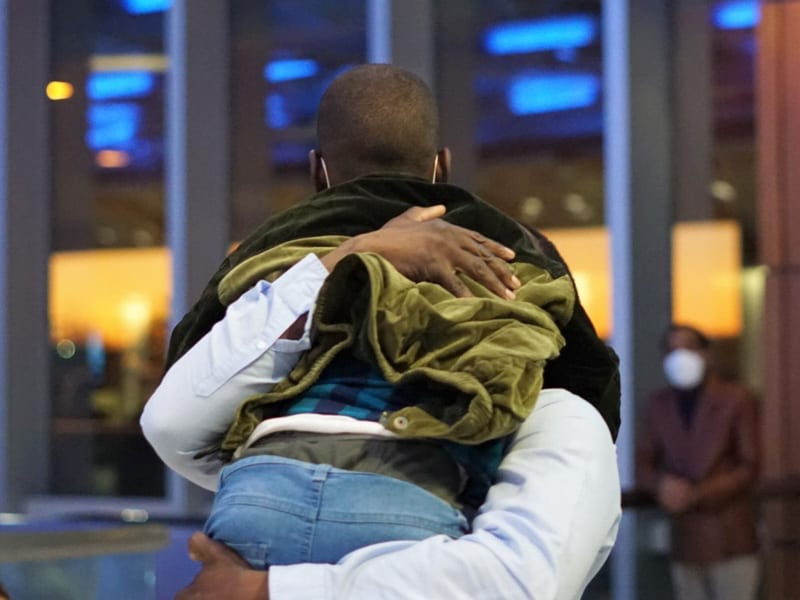
Now, with his family finally together again, Ibrahim has new hopes.
“My hopes are for my kids,” Ibrahim states. “For them to get the right education, for them to be able to be good people. I want them to make something for themselves and make me proud… for them to benefit themselves and our new country — the United States.”
Remembering Those Left Behind
Even as Ibrahim and his family continue building their new life together in the U.S., he often remembers Darfur and the family, friends, and neighbors they had to leave behind.
“People are really suffering there. They don’t have food, they don’t have water, they live in very unsafe, unhealthy conditions,” he said.
The UN estimates 2.5 million people are living in displacement camps across Darfur, and 6.2 million people will need humanitarian assistance in the region within the next year. The same factors — war, violence and persecution — that drove Ibrahim and his family to find safety are still impacting people in Sudan today.
At World Relief, we recognize that addressing the drivers of mass displacement requires a multi-faceted and holistic response. In Sudan, World Relief is on the ground providing humanitarian assistance and investing in development and peacebuilding efforts to address the underlying factors contributing to conflict and displacement.
Together, We Can Respond
Building a just world means coming alongside families like Ibrahim’s once they’ve reached the U.S. and it means finding lasting solutions to the problems that force families to flee in the first place.
For Ibrahim, his hope for safety and brighter futures for those still in Darfur endures — “I really would like for them to… have a better life for themselves and for their kids.”
Together, we are taking action, hoping and praying for lasting solutions for displaced and separated families like Ibrahim’s both in the U.S. and in countries around the world.
World Relief Chicagoland relies on partners and volunteers like you to help build welcoming communities. Join us on the path to hope, transformation, and lasting change alongside refugees and immigrants like Ibrahim.

Kelly Hill serves as a Content Writer at World Relief. She previously served as Volunteer Services Manager at World Relief Triad in North Carolina before moving to Salt Lake City. With a background in International and Intercultural Communication, she is passionate about the power of story to connect people of diverse experiences.
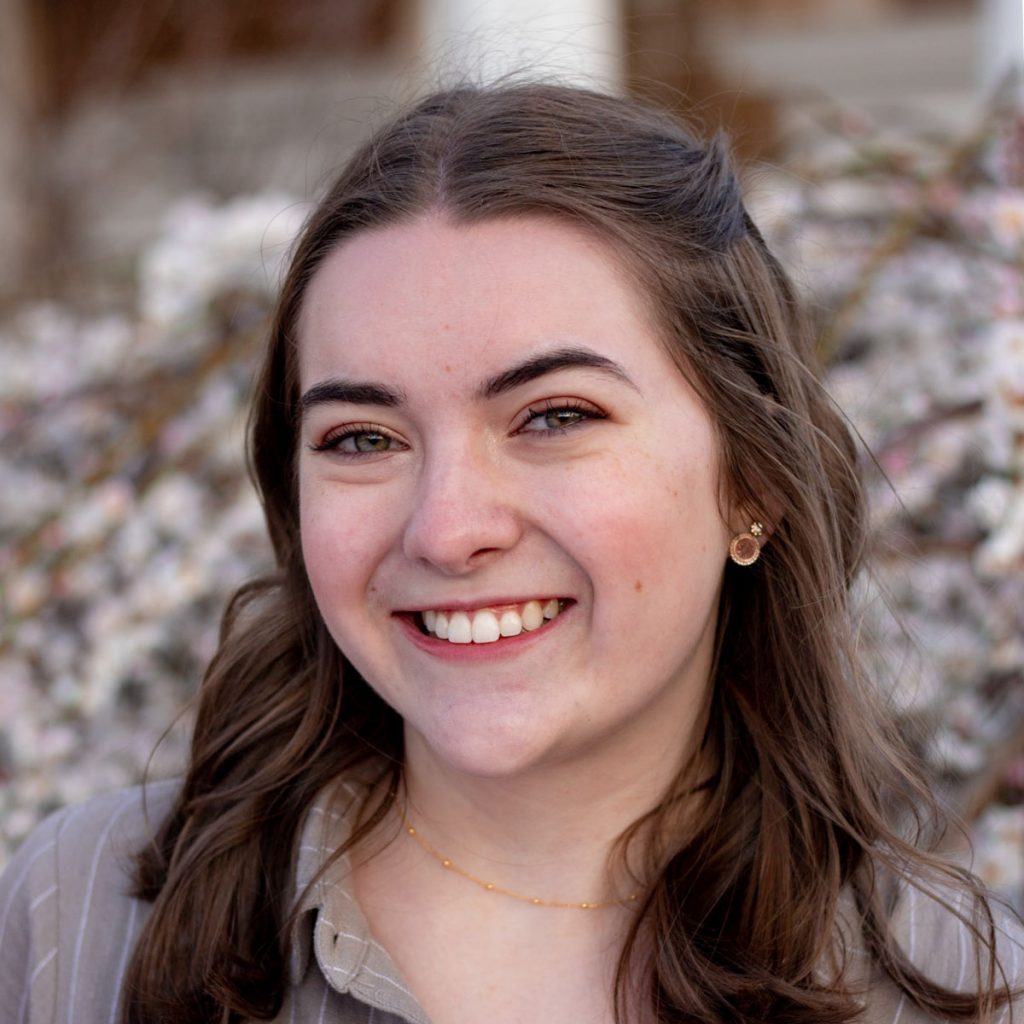
Abby Ray has been serving as the Communications & Advocacy Coordinator at World Relief’s Triad office since September 2021. She works to amplify the voices of clients, staff and community members by empowering them to share their own stories.
Building a Community of Safety and Belonging
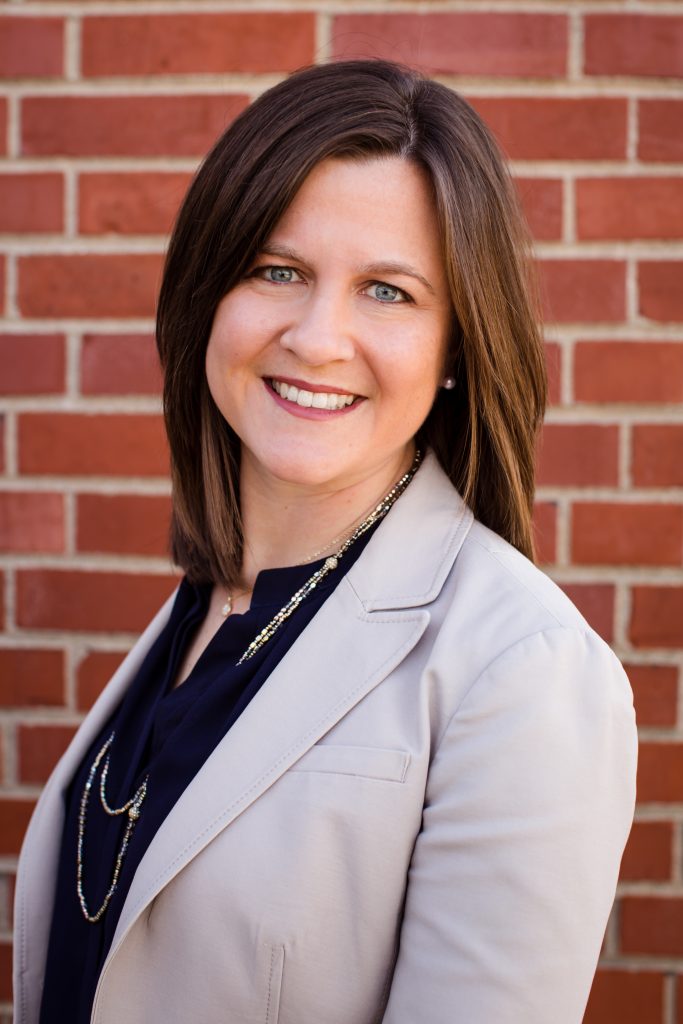
A reflection from World Relief Chicagoland Executive Director Susan Sperry.
June is World Refugee Awareness Month. And on June 20th, we celebrate World Refugee Day. This year, the theme of World Refugee Day is focused on the human right to seek safety.
Whoever they are, people forced to flee should be treated with dignity. Anyone can seek protection, regardless of who they are or what they believe. It is non-negotiable: seeking safety is a human right.
Wherever they come from, people forced to flee should be welcomed. Refugees come from all over the globe. To get out of harm’s way, they might take a plane, a boat, or travel on foot. What remains universal is the right to seek safety.
Whenever people are forced to flee, they have a right to be protected. Whatever the threat – war, violence, persecution – everyone deserves protection. Everyone has a right to be safe.
UNHCR
Who are the people seeking safety?
This is a time of visible conflicts. You might think of Ukraine. There are millions of others who have fled their homes due to less-publicized conflict in places like Ethiopia, Myanmar, or South Sudan. Many of these people become refugees. And during Refugee Awareness Month, it is important that we tell their stories of leaving home to seek refuge.
And yet there are others too – people who arrive in the United States seeking protection from violence because of their identity, religion, or views.
June is National Immigrant Heritage Month, so we also have the time to consider our immigrant neighbors who left beloved homelands, friends, and family…to seek safety and a place to live freely.
This month, I am reflecting on the key reason why both refugees and immigrants must have the right to seek safety: each one is a human being. Those of us who follow Jesus believe in the concept of the “Imago Dei”: that each person is made in the “Image of God.” Let’s explore a few reasons why that makes such an impact on how we treat our immigrant and refugee neighbors.
1. Remembering the Imago Dei Transforms Our Relationships from 2D to 3D
I recently had a conversation with a pastor about what it means to cultivate deep relationships. This pastor framed the conversation as taking a relationship from two dimensions (2D) to three dimensions (3D). By necessity, all of us have “2D” relationships. There are people we know of and we know about, but we don’t know in-depth. We know their outer image, but it’s more of a caricature. We may not think of them as a complex individual with the same level of joy, pain, and experience that we have.
A person becomes “3D” when we spend time together. By talking, laughing, eating, and being human together, we gain insight into their joys, pains, dreams, and fears. When we share life together, we become better able to see the image of God in the person before us and also recognize it within ourselves.
That’s also how we begin to understand each other’s potential. We recognize their capacity to love, create, and build relationships — and that those are qualities we share by virtue of being humans, created in the image of God.
Relationships that move from 2D to 3D begin the process of building community. And in community, where we recognize each other’s humanity, potential, and limitations, we can create safety and space for each other to thrive.
2. Developing Relationships and Belonging Requires Time
In more than 20 years with World Relief, I have seen thousands of people resettled and thousands more immigrants become a part of the World Relief community in Chicagoland. And I have experienced the many ways that being together in community is rewarding and transformative for all involved. In my friendships with immigrants and refugees like Deborah, Jerome, Mohammad, Durmomo, and many others, I have gained an appreciation for the way that the image of God manifests in the creativity, wisdom, and compassion of those around me. Keep an eye out for an upcoming blog series from my friend Durmomo about this!
In each of these friendships, investing time with each other has transformed a 2D image in my head into a 3D understanding in my heart. I am deeply grateful for how these relationships and how we continue to shape each other.
3. Our Value as Humans Gives us the Right to Seek Safety
Christianity, and many other faiths, emphasize the fact that human life is precious. This common thread across cultures is backed up in the theological belief of Christians, that humans created by God and loved by Him, are valuable and important. When someone’s life is threatened, they should have the right to seek safety so that they can experience peace, a relationship with God and others, and the opportunity to use their God-given talents and passions. As Christians, we can protect that opportunity by creating a welcoming space.
I believe that together, we can form a movement to serve the vulnerable people among us. That includes extending safety to refugees and immigrants who have fled war, violence, and persecution and allows us to see the value in every human life. We welcome them. Whoever they are, wherever they come from, and whenever they arrive.
Continue reading:
Ali’s Story: A Refugee Pharmacist Using His Career to Give Back to Others
Finally, I’m Home: Raphael’s Story of 8 Years Waiting for Resettlement
5 Ways You Can Lead in Your Community
Creating communities of love and welcome requires all of us. We believe that we each have a part to play and as Susan Sperry reflects in last week’s blog, we all can lead from where we are. For many of us, leading from where we are can feel intimidating and sometimes, we get stuck. If you’re like me, seeing a few examples can inspire you to take the next step. Here are 5 simple ways that you can lead in your community.
Advocate for Refugees and Other Immigrants
From where you are, you can lead through advocacy efforts with World Relief. From pushing for pathways to citizenship for Afghans and Ukrainians to resourcing resettlement efforts as a whole, your voice can create change. In addition to signing on, you can share these efforts with friends, family, or on your social media accounts.
Gather People to Gather Items
Inviting a group of people you know to collect items that help support a newly arrived family is a simple and effective way to lead from where you are. Maybe this is a small group from church, a team from work, or families in your neighborhood. You can find lists of needed items on our website and gather people and items at the same time!
Lead a Volunteer Team
Bringing people together to form a Good Neighbor Team or a HOME team is another way to lead. Take a few minutes to look at the circles you are in. Do you know other people interested in supporting a newly arrived family? Send them a text or make a phone call to see if they want to journey with you to extend welcome. Learn more about serving as a team on our volunteer page.
Lead a Book Club
Recommend a book to your book club around refugee and immigrant issues. Not in a book club? Consider starting one! Here are a few recommendations AND a brand-new book that is being released this month
- Welcoming the Stranger by Matthew Soerens & Jenny Yang
- Seeking Refuge by Stephen Bauman, Matthew Soerens, & Dr. Issam Smeir
- Inalienable by Eric Costanzo, Daniel Yang, & Matthew Soerens
If you are in Chicagoland, join us in person for the official book launch event with the authors on May 31st at 7:00pm.
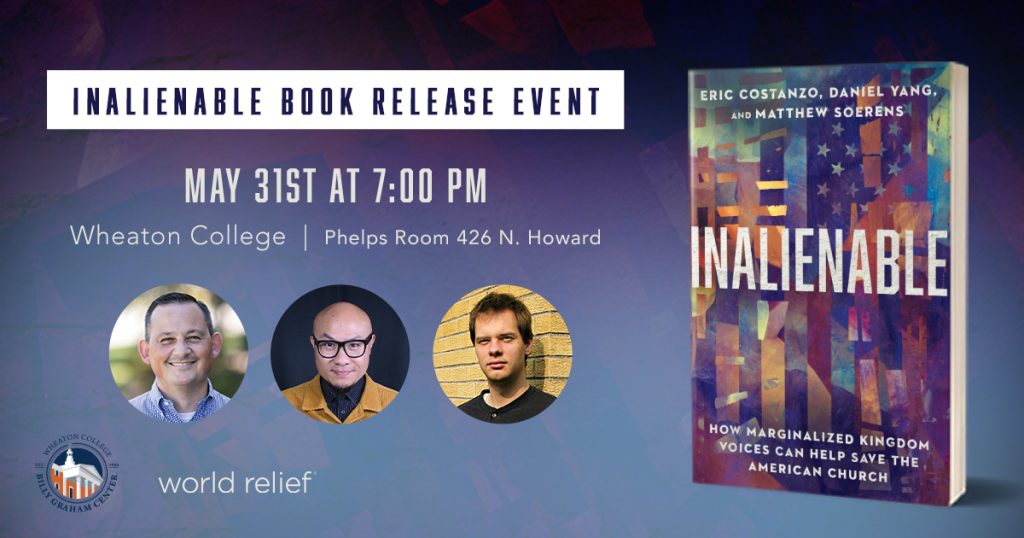
Start a Facebook Fundraiser
Facebook fundraisers are quick and easy to set up. They are a simple way to share with others that you care about supporting immigrants and refugees. And you can invite others to join you in providing the services offered through World Relief. Follow the steps at the link above and select World Relief – to make sure the donation is supporting the work in Chicagoland, email Nathan White to ensure the correct designation.
There are so many opportunities for each of us to lead where we are. Hopefully, this short list spurs in your imagination many other ways to lead. Together, we can lead from where we are to create lasting change.
Stories of leading:
Partner Spotlight: Greg & Olivia Evans on “Who is my neighbor?” (worldrelief.org)
A Model for Corporate Partnership: GForce Life Sciences – World Relief
The Volunteer and Refugee Friendship Helping Both Friends Succeed (worldrelief.org)
A Model for Corporate Partnership: GForce Life Sciences
At World Relief Chicagoland, we love working with partners in a holistic way especially when we share the core value of serving people in vulnerable situations. A holistic partnership is about more than writing a check (though it is one way to make an impact). It involves mobilizing people in your company to engage in a meaningful way that leaves a positive impact on everyone. We would like to highlight one of our corporate partners – GForce Life Sciences.
Moving Towards Impact
Their mission statement is to make an impact one person at a time. GForce Life Sciences was introduced to World Relief by President John Webber’s wife, Tricia. Tricia served as a volunteer and former staff with World Relief. The Webber family had a front-row seat to how challenging it is for refugees and immigrants to be dropped into the U.S. and forced to acclimate to life here immediately. They came to believe that partnering with World Relief was the right next step for them.
In addition to English classes, World Relief assisted with finding jobs, a home, classes and more. There are so many things that we take for granted like registering for school or navigating medical appointments. These were the things that Tricia got to help the families with. She also taught in World Relief’s “pre-school” while parents were taking ESL classes.
-John Webber, President and CEO of GForce Life Sciences
A Mutual Impact
In addition to the financial partnership from GForce Life Sciences, their team shows up to be part of Conversation Cafés. These cafés bring volunteers and English language learners together to practice English in a casual, yet guided setting. Every time John and his team join a Conversation Café they make an impact, bond as a team, and are blessed by their new friends. There are smiles for days.
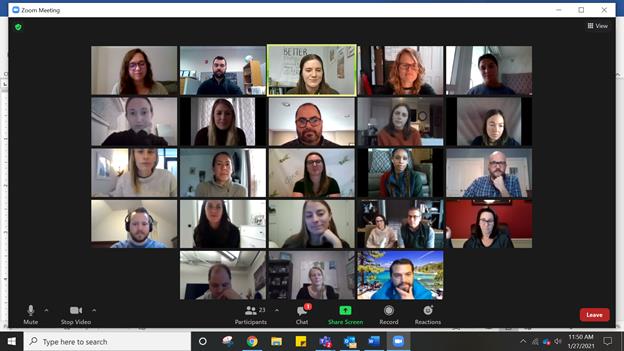
GForce wanted to support WR financially, but to really “make an impact” we also wanted to invest some of our time. It’s made an impact, not just on our new neighbors from abroad, but on our team as well. They love it!
-John Webber, President and CEO of GForce Life Sciences
Exploring Your Impact
Another way that many companies partner with World Relief is through hiring refugees and other immigrants who are eager to work. World Relief has more than 30 years of experience connecting qualified, authorized, and reliable employees with leading companies in the United States. Through working with Employment Services, your company can find great employees and make a difference. We would love to work with you and your team.
When you partner with World Relief in a holistic way, you get to have a deeper impact.
Ready to Become a Corporate Partner?
Contact Carrie Woodward to begin the conversation and learn how.
Continue Reading:
Finally, I’m Home: Raphael’s Story of 8 Years Waiting for Resettlement
I Was No Longer Safe in My Country: Yomardy’s Story of Seeking Asylum
Celebrating International Mother Language Day
Perhaps like me, you were surprised and intrigued to learn that International Mother Language Day (IMLD) is a global celebration. First proclaimed in 1999 by UNESCO, the goal of the day is “to promote linguistic and cultural diversity and multilingualism.” This year, the theme of IMLD is about the use of technology in language education.
From hot spots and mobile devices to software and virtual classrooms, World Relief has used the power of technology to serve people from over 50 different languages and 100 different countries.
Here are a couple of the benefits of technology that we have seen.
Fewer Barriers to Learning
Hosting classes on zoom has removed barriers like transportation and childcare. Now parents with young kids, immunocompromised individuals, and families that are still in need of a car can learn English. Breakout rooms give students opportunities to connect with one another. Sometimes students join from their apartment, a public park, or in their car. It is so special to see them finding joy and comfort in their classroom communities.
Volunteering is More Accessible
From all over Illinois, the community of volunteers supporting and contributing to vibrant online classes is inspiring. People, like you, log on regularly and find a place to make a difference. In addition to virtual classes, there are virtual tutoring opportunities to help students become better at navigating everyday life in the United States.
Learning English is a vital step to help someone navigate life in the United States. The ability to speak English empowers immigrants to read signs at grocery stores, contribute to parent-teacher conferences, comprehend medical appointments, and so much more. While learning English is necessary here in the United States, I believe that different languages are a beautiful gift from God that should be celebrated. A quote that Teacher Ashley Heredia shared with me captures some of this sentiment.
“Language is the road map of a culture. It tells you where its people come from and where they are going.”
-Rita Mae Brown
Many of the people in our English classes have powerful and beautiful stories. It is a joy to find yourself in a community with people who are different from you. When you experience being welcomed by someone in their mother language, it is an honoring and beautiful moment, one I hope to never take for granted.
Celebrating Languages
Check out this quick video of one of our classes sharing how to say “welcome” in their mother languages. And then consider how you could get involved in virtual English education.
Other Volunteer Stories:
My Life Motto: Becoming a Wounded Healer
The Volunteer and Refugee Friendship Helping Both Friends Succeed









